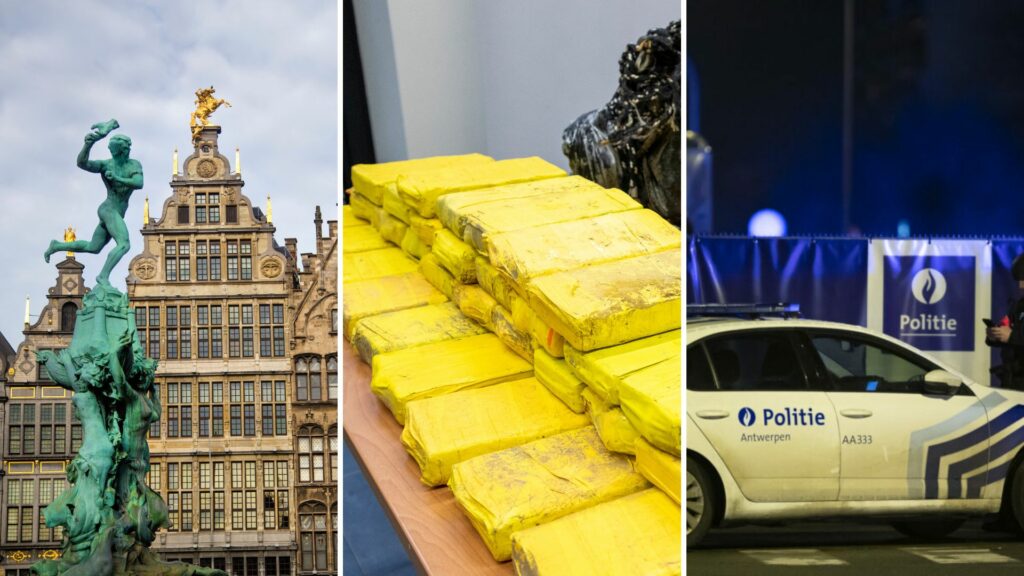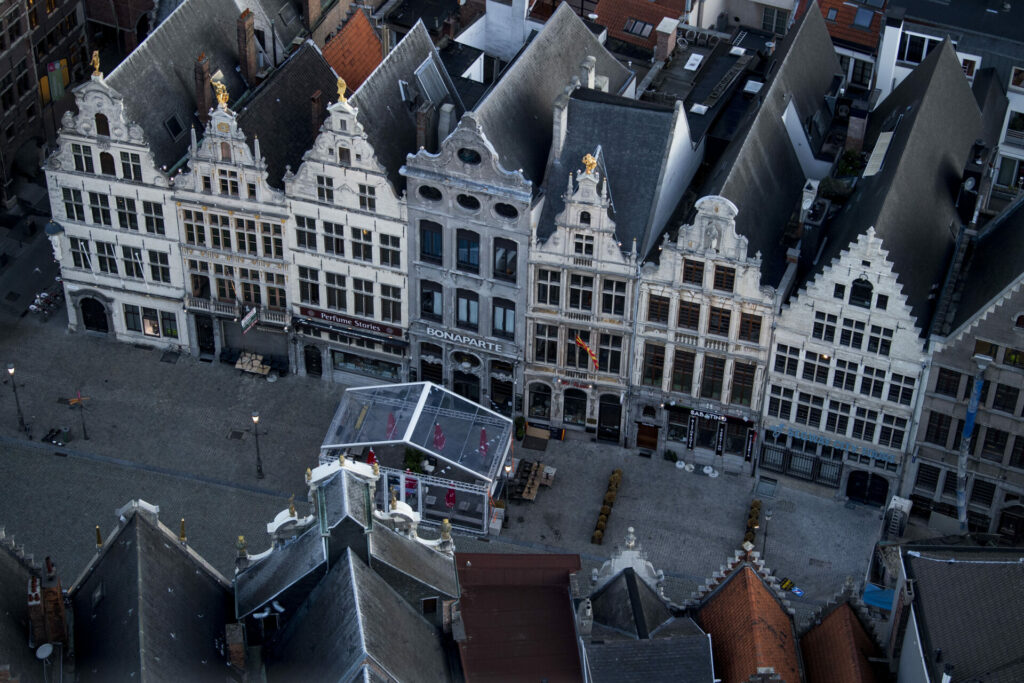It's no secret that Antwerp takes first place for Europe's cocaine business, with cartels seeing the Belgian mega-port as an easier target when it comes to evading customs checks. Though authorities are well aware of the problem, the sheer scale makes it exceptionally difficult to dent the trade, let alone deliver anything close to a death blow.
The port shifts 7.5 million containers each year and any delay has the potential to snarl up the supply chains across the continent. Sifting through the contents is an impossible task – the needle and haystack analogy multiplied by millions. What makes the port so practical to any business is the location: 60% of EU purchasing power is within a 500 km radius, making it an ideal point of transit.
But the Flemish city isn't only the starting point in distribution across the continent; unsurprisingly some of the goods that pass through the port are delivered in the immediate vicinity. Justice Minister Vincent Van Quickenborne says that about 10% of cocaine moving via the port is destined for a domestic market (largely the Netherlands and the UK).
Wastewater analysis by the European drug monitoring centre reveals that the city also has the highest consumption of the substance, with cocaine use rising a considerable 50% in just one year. The findings show how cocaine use is more concentrated close to where it first reaches European shores. Concentrations of the drug in wastewater were 2.5 times greater in Antwerp than Brussels, which ranks fourth for cocaine use in Europe.
And despite new records being set each year for the amount of the drug that is seized, supply has yet to take a hit and street prices have remained stable. Experts estimate that last year 11% of cocaine passing through Antwerp was intercepted. It is thought that 20% would need to be stopped to really have an impact on the business model.
But the battle to get there will take years and may never be successful. The Sky-ECC case uncovered the extent of corruption in the logistics and legal sectors, and criminals are increasingly turning intimidation tactics on officials. Meanwhile the gargantuan game of hide and seek goes on.
Belgium in Brief is a free daily roundup of the top stories to get you through your coffee break conversations. To receive it straight to your inbox every day, sign up below:
1. 'Accidental' and expat Americans join forces to combat unfair US tax law
An initiative has been launched to fight against the American extraterritorial law, Citizenship Based Taxation (CBT). This sees people who find themselves with US citizenship against their choosing having to pay tax twice and declare all their income. Read more.
2. Antwerp again named Europe's cocaine capital after wastewater analysis
Drug use is rising across Europe and Belgium is once again reporting the highest figures, an annual analysis of wastewater from the European Monitoring Centre for Drugs and Drug Addiction (EMCDDA) shows. Read more.
3. Bomb explosion damages six houses in Antwerp
An explosion damaged several houses on Kortrijkstraat in the Antwerp district of Borgerhout in the early hours of Thursday morning, Antwerp police report. Read more.
4. Future teachers will need to prove French proficiency in Wallonia and Brussels
A proficient level in the French language will become an obligation for all aspiring teachers in Wallonia and Brussels, regardless of their discipline, with a new requirement test set to come into force for teachers at the start of the next school year in October. Read more.
5. 'Moderately positive': Agreement reached on improving working conditions on Belgian railways
After several weeks of negotiations between rail companies and trade unions, an agreement has been reached between SNCB and trade unions for 2023-2024 which aims to improve working conditions for railway workers. Read more.
6. Teacher harassed 200 students for sexually explicit photos
A professor at a college in Comines is facing grooming charges and will appear in court on Thursday for the first day of the trial. The teacher had made a fake Facebook profile to trap teenagers, most ages 14 to 17, into sending sexual photos. Read more.
7. Birthday, anniversary or promotion? Best Brussels restaurants for special occasions
From tiny, quaint eateries to established, Michelin-star restaurants, Brussels has an array of restaurants to suit everyone's taste and budget. Read more.


